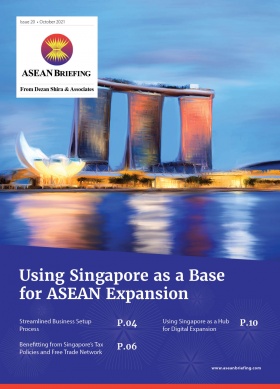Singapore Allows Companies and Trusts to Adopt Virtual Annual Meetings
Singapore has taken a significant step towards promoting a pro-business environment by allowing companies and business trusts to adopt virtual annual general meetings (AGMs). On May 9, 2023, the Ministry of Finance introduced the Companies, Business Trusts and Other Bodies (Miscellaneous Amendments) Bill, which amends the Companies Act of Singapore.
Under the amended legislation, private limited companies and public companies incorporated in Singapore now have the option to hold virtual AGMs in addition to statutory meetings and extraordinary annual general meetings. Previously, AGMs were primarily conducted in person.
Both publicly listed companies and non-listed companies in Singapore are required to hold an AGM. Publicly listed companies must hold their AGMs within four months after the end of their financial year, while non-listed companies must hold it within six months after the end of their financial year. During the AGM, companies are expected to present their financial statements, providing shareholders with insights into the company’s financial health. Moreover, shareholders are given an opportunity to raise questions and concerns about the company’s operations.
The recent amendments reflect Singapore’s commitment to fostering an environment that is conducive to business growth and innovation. By allowing virtual AGMs, companies and business trusts can leverage technology to streamline their operations, improve efficiency, and enhance shareholder engagement. This move aligns with Singapore’s ongoing efforts to stay at the forefront of digital transformation and adapt to the evolving needs of businesses in a rapidly changing world.
What type of company meetings do the amendments apply to?
The amendments introduced in Singapore now allow for the following types of company meetings to be conducted fully virtual or in a hybrid format:
- Annual General Meeting (AGM) of companies
- Extraordinary General Meeting (EGM) of a company
- Meetings ordered by the Court under Section 182 of the Companies Act
- Meetings directed by the Courts involving creditors, holders of shares, or members of a company under Section 210 of the Companies Act
- Statutory meetings of a company
- General meetings of amalgamating companies
- Meetings of a specific class of members of the company
These amendments provide companies with greater flexibility in conducting their meetings by allowing virtual or hybrid formats, where participants can join remotely. This enables companies to leverage technology and adapt to changing circumstances while ensuring effective communication and engagement with stakeholders.
Can companies in Singapore choose not to hold fully virtual or hybrid meetings?
Companies in Singapore retain the choice to hold physical meetings. Further, starting from July 1, 2023, companies also have the option to amend their Company Constitution explicitly to prohibit the holding of virtual or hybrid meetings if they wish to do so.
However, no amendments to the Company Constitution is required to hold fully virtual or hybrid company meetings.
This approach offers companies the flexibility to adapt their meeting format based on their unique circumstances and business requirements.
Can companies in Singapore be exempted from holding AGMs?
Since August 2018, private companies in Singapore have been granted an exemption from holding an AGM if they fulfill certain requirements. Instead of conducting an AGM, private companies can forgo the meeting if they send their financial statements to their members within five months after the end of the financial year.
However, specific safeguards are in place to ensure transparency and accountability.
- If any member of the company wishes to hold an AGM, they must notify the company no later than 14 days before the end of the sixth month after the end of the financial year. In such cases, the directors of the company are obligated to convene an AGM within six months after the end of the financial year, as per the member’s request.
- Furthermore, if either a member or the company’s auditor requests an AGM within 14 days after the financial statements have been sent out, the company is obliged to hold the general meeting, regardless of the exemption.
Procedure for shareholder meetings
Notice for shareholders
Shareholder meetings follow a specific procedure outlined by the Companies Act in Singapore. The company is responsible for sending out a notice to its shareholders, members, and officers, containing essential information related to the meeting. The notice must include the following details:
- Date, time, and place of the meeting: The notice should clearly state the scheduled date, time, and location of the shareholder meeting.
- Agenda: The notice should specify the topics and matters that will be discussed during the meeting.
- Appointment of proxies: The notice must inform members about their rights to appoint a proxy to attend and vote on their behalf if they are unable to attend the meeting personally.
- Special resolution: If any matter requires a special resolution, the notice should explicitly state the requirement for a special resolution.
In the case of an ordinary resolution, the notice must be sent to shareholders at least 14 days before the scheduled general meeting. For matters requiring a special resolution, the notice must be provided at least 21 days in advance of the general meeting.
Electronic notices
Amendments to the Companies Act have introduced the option of sending notices electronically. This means that companies can now deliver notices via electronic means such as email, company websites, fax, or other electronic communication methods.
Also read
- New Due Diligence Requirements for Corporate Finance Advisers in Singapore
- New Stricter Requirements for Singapore’s Global Investor Program
- Leveraging Singapore’s Incentives and Schemes for Industry 4.0 Investments
About Us
ASEAN Briefing is produced by Dezan Shira & Associates. The firm assists foreign investors throughout Asia and maintains offices throughout ASEAN, including in Singapore, Hanoi, Ho Chi Minh City, and Da Nang in Vietnam, in addition to Jakarta, in Indonesia. We also have partner firms in Malaysia, the Philippines, and Thailand as well as our practices in China and India. Please contact us at asean@dezshira.com or visit our website at www.dezshira.com.








